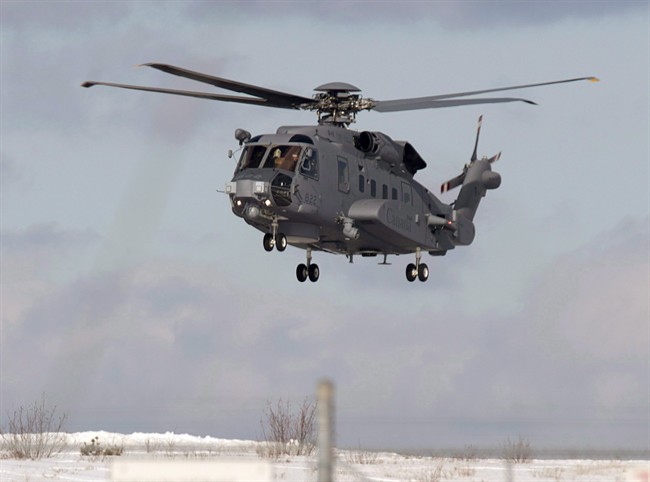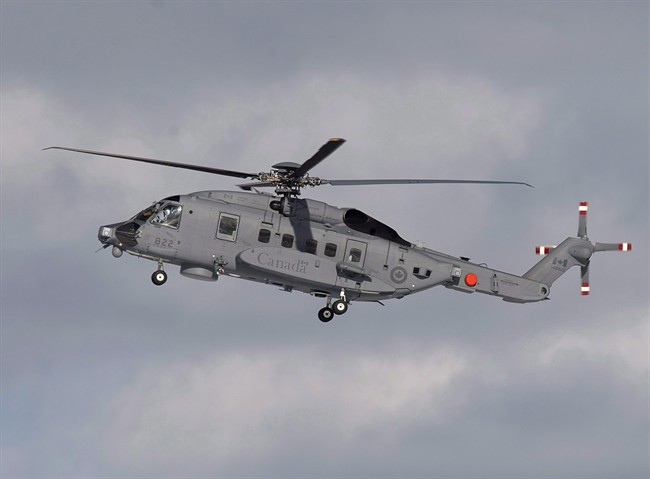One of Canada’s new Cyclone helicopters had an unexpected parking issue last year that caused it to be winched off a warship and sent engineers back to their drawing boards.

Access to information documents say a metal ring on the helicopter’s nose snapped as crew tried to get it lined up for a tow into a hangar on the frigate.
The incident occurred during testing before the former Conservative government accepted ownership of the choppers.
Brigadier General Paul Ormsby says tests are being carried out to ensure the deck parking system works more smoothly in future.

Sikorsky spokesman Paul Jackson also says the firm has developed a new approach.
Documents from late in 2014 also say the initial helicopters received would have a lifespan of 200 hours before some parts had to be changed out.
Ormsby says since then there has been further testing and the first helicopters can be used up to 500 hours before some components need to be switched.
The 28 Cyclones have faced repeated development delays since being ordered in 2004 and are not expected to be fully operational until 2021.



Comments